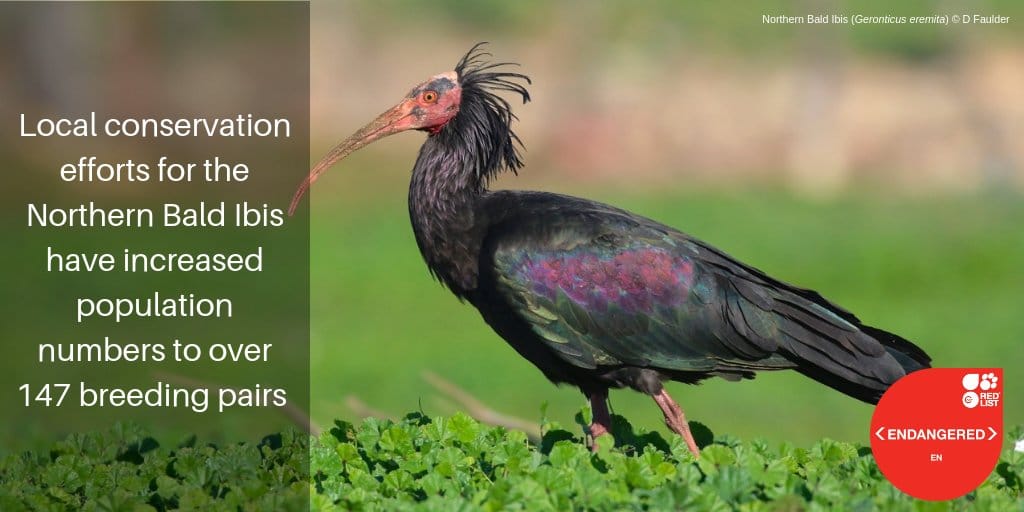The conservation status of the Northern Bald Ibis has been improved from Critically Endangered to Endangered on the latest IUCN Red List assessment.
L’état de conservation de l’Ibis chauve a été amélioré, passant de « En danger critique d’extinction » à « En danger » dans la dernière évaluation de la Liste Rouge de l’UICN.

The Northern Bald Ibis (Geronticus eremita) was driven to the brink, teetering at just 59 pairs in the 1990s due to habitat loss, pesticides, and hunting. Today, the species, once revered as a holy bird in Ancient Egypt, has disappeared from most of its known range. The only ibis population that’s shown evidence of improvement is in Morocco.
In fact, Northern Bald Ibis numbers in Morocco have risen to 147 breeding pairs, a modern-day record, in addition to the discovery of new breeding sites. In the latest assessment, the Northern Bald Ibis has been downlisted from Critically Endangered to Endangered on the IUCN Red List.
“Since my first involvement working on this extraordinary species in the early 1990s, when the trends were a series of local extinctions and overall decline, it’s an immense source of pride that the sustained, but gradual increase in Morocco means that downlisting is needed,” Chris Bowden, coordinator of the AEWA Northern Bald Ibis International Working Group, said in a statement. “This has been the result of the sustained efforts of the Souss-Massa National Park, the locally trained wardens, fishermen recruited from nearby villages, and the BirdLife Partners involved (GREPOM, SEO/BirdLife and RSPB).”
But it hasn’t been all good news for the bird. A tiny population of Northern Bald Ibis in Syria has declined from three pairs in 2002 and is likely extinct now, researchers say. In fact, Morocco might be the last home to the species in the wild. The bird’s overall numbers are also still low, which means conservation efforts need to be sustained.
“There is still a lot to do, including resisting development pressures in the two main Moroccan sites and maintaining all the ongoing efforts highlighted in the recently updated International Single Species Action Plan,” Bowden said. “It’s crucial that the downlisting doesn’t reduce the priority in achieving all of this, but we should congratulate in particular the Moroccan Government, and specifically the Ministry of Water and Forests [in their fight against] desertification, on this downlisting, which is a momentous endorsement of their success.”